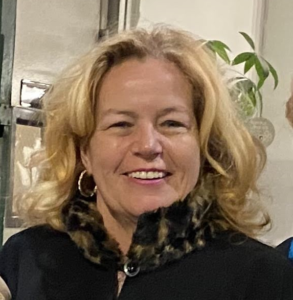By Ellen Russell Beatty
Ponder This

Ellen Russell Beatty
There is an effort in many circles to eliminate language that is gender specific, especially as it occurs in official documents and policies. At the national level, there has been recent discussion following a minor change in rules pertaining to one Congressional document in an attempt to “honor all gender identities by changing pronouns and familial relationships in the House Rules to be gender neutral.”
Resultant discussion may risk missing the important intention that such changes attempt to address. The purpose is not merely to eliminate words or stop dialogue that can be considered offensive, but to enhance our understanding of one another. Only then can we engage in nuanced conversations about important issues.
I am much less offended by terms that have unnecessary and/or inaccurate gender than I am by the policies and patterns that persist because of these terms. The goal is not only to use personal objections about gender-based language to change individual responses to others based on their stated preferences. Any requests for changes in language must help change underlying practices.
Language modification is the initial, necessary step in changing the culture in which we live and work. Education and training can be powerful tools to overcome microaggressions and recognize each other’s sensitivities.
I am a nurse with a core value system that values competence, so I am reluctant to share vulnerability, especially publicly.
A friend and colleague recently asked “What do you want?” referring both to public office and community organizations.
Sometimes this is stated with an edge so that the question inadvertently represents the great divide of those trying to understand what is needed. The answer is respect, partnership and autonomy. The latter makes one cringe, since autonomy versus doubt is a lower-level step in the taxonomy of human developmental tasks.
Has the experience in local government, of being on the outside, plummeted me in the wrong direction developmentally? This is much more important than individual hurts by influential others. So let us not limit our discussion to microaggressions, but rather the real macroaggression of maintaining power and influence only for a chosen few. My comments may be worthwhile, but they emerge from a position of a lack of power. Why is that so?
Tiffany Jarvis may have coined the expression “subtle acts of exclusion” as a more modern term for micro/macroaggressions. This rings true as it pertains to sexist dynamics that I am describing. The absence of shared governance can be palpable and strikes at any pretense that we have any authority or influence over policy or processes that govern the city. Certain policies and behaviors, including committee assignments, structure and appointments may still remain outside of influence except by an inner circle.
Has a hard line been created, albeit with a soft, velvet touch, between those with influence and those without? In the leadership literature there is a concept of legitimate authority, such as elected office. One has to earn the legitimate authority before one can exercise influence. Oddly, in this scenario, having legitimate authority may translate into less autonomy because the earned legitimate authority comes with the expectation of keeping the status quo. This is peculiar and signals trouble in the dynamics of the system.
Training and sensitivity sessions are useful and necessary, but they are not a substitute for action. It is with a deep awareness that my experience does not prepare me to speak about issues of equity for people of color. This is not my story to tell. But I can add to the important dialogue that must begin about equity and justice.
How can we ever make any progress if we cannot even get to the discussion? As members of elected boards, we should be leading such discussions as stakeholders in this process of working toward equity. But how can we lead if we are still uncomfortable talking with one another about shared governance and equitable treatment of one another? We must accomplish this well before we can influence any authority over policy or processes that govern the city.
What do I want? I guess I want to stop being viewed from the perspective of difference from the mainstream. The impact of such outsider experience has not been benign. Just as with people of color, the marginalization hurts advancement of career and erodes energy, time and personal resources.
I am most conscious of staying in my lane since I have only the bird’s-eye view of the phenomenon from my position of being white. But my experiences as a woman with subtle acts of exclusion can be a start. The individual members, men and women, of the board are my friends and colleagues. They have enriched my life and I believe that the warm regard is reciprocal. I am banking on their discernment not to be defensive but to listen to my concerns.
Together we have turned a corner and are working as a group to use our full capacity to lead well. I am very hopeful for the future but there is still challenging work ahead of us.
Dr. Ellen Russell Beatty served seven years as Associate Vice President of Academic Affairs at Southern Connecticut State University, and also served as interim Academic Vice president, Dean of Health & Human Services and Director of Faculty Development. In addition to the broad perspective and a multitude of skills required of high-level administrators, her areas of special expertise lie in strategic planning, accreditation, assessment and planning and budgetary allocation.